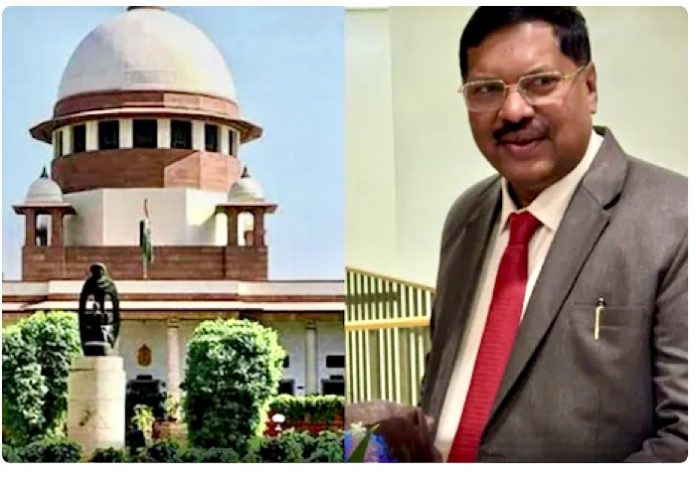Justice Bhushan Ramkrishna Gavai has been appointed as the 52nd Chief Justice of India (CJI) following the retirement of Justice Sanjiv Khanna. President Droupadi Murmu approved his appointment on Tuesday.
Justice Gavai will assume office on 14 May, a day after Justice Khanna formally demits office. Justice Khanna served a short tenure of just six months after succeeding former CJI Dhananjaya Yeshwant Chandrachud in November last year.
Justice Gavai is also expected to serve for about six months, retiring on 23 November 2025 upon reaching the age of 65.
Who is Justice BR Gavai?
As per the official website of the Supreme Court, Justice Bhushan Ramkrishna Gavai was born on 24 November 1960 in Amravati, Maharashtra. He enrolled as a lawyer on 16 March 1985 and initially worked with the late Raja S. Bhonsale, former Advocate General and High Court judge, until 1987.
He began independent practice at the Bombay High Court in 1987, and from 1990 onward, mainly appeared before the Nagpur Bench. He specialised in Constitutional and Administrative Law and served as Standing Counsel for the municipal corporations of Nagpur and Amravati, as well as Amravati University. He also regularly represented various government bodies and councils across the Vidarbha region.
Justice Gavai was appointed Assistant Government Pleader and Additional Public Prosecutor at the Bombay High Court, Nagpur Bench, in August 1992, and later became the Government Pleader and Public Prosecutor in January 2000.
He was elevated as an Additional Judge of the Bombay High Court on 14 November 2003 and became a permanent judge on 12 November 2005. During his tenure, he presided over benches at Mumbai, Nagpur, Aurangabad, and Panaji, handling cases across all domains.
On 24 May 2019, he was elevated to the Supreme Court. Currently, he is the senior-most judge after Justice Khanna.
Key Judgments By Justice Gavai
Throughout his tenure at the Supreme Court, Justice Gavai has been involved in several landmark rulings. Here are some of the most notable as complied by LawStreet Journal.
Electoral Bonds Case, 2024: He was part of the Constitution Bench that struck down the 2018 Electoral Bonds Scheme, ruling that it violated citizens' right to information and undermined transparency in political funding.
Bulldozer Demolitions, 2024: In a notable verdict with Justice KV Viswanathan, he held that demolitions targeting accused individuals without due process were unconstitutional, reinforcing the need for procedural fairness.
Demonetisation Verdict, 2023: In the case of Vivek Narayan Sharma v. Union of India, Justice Gavai wrote the majority judgment supporting the government's 2016 demonetisation policy. The ruling stated that the move was lawful, appropriately balanced in its objectives, and carried out following proper consultation with the Reserve Bank of India (RBI).
Article 370 Abrogation, 2023: Justice Gavai was on the five-judge bench that unanimously upheld the abrogation of Article 370, affirming Parliament's power to revoke Jammu and Kashmir's special status.

The BuckStopper, run by a group of seasoned journalists, holds the powerful accountable. The buck stops with them, as they cannot shrug off their official responsibilities.



